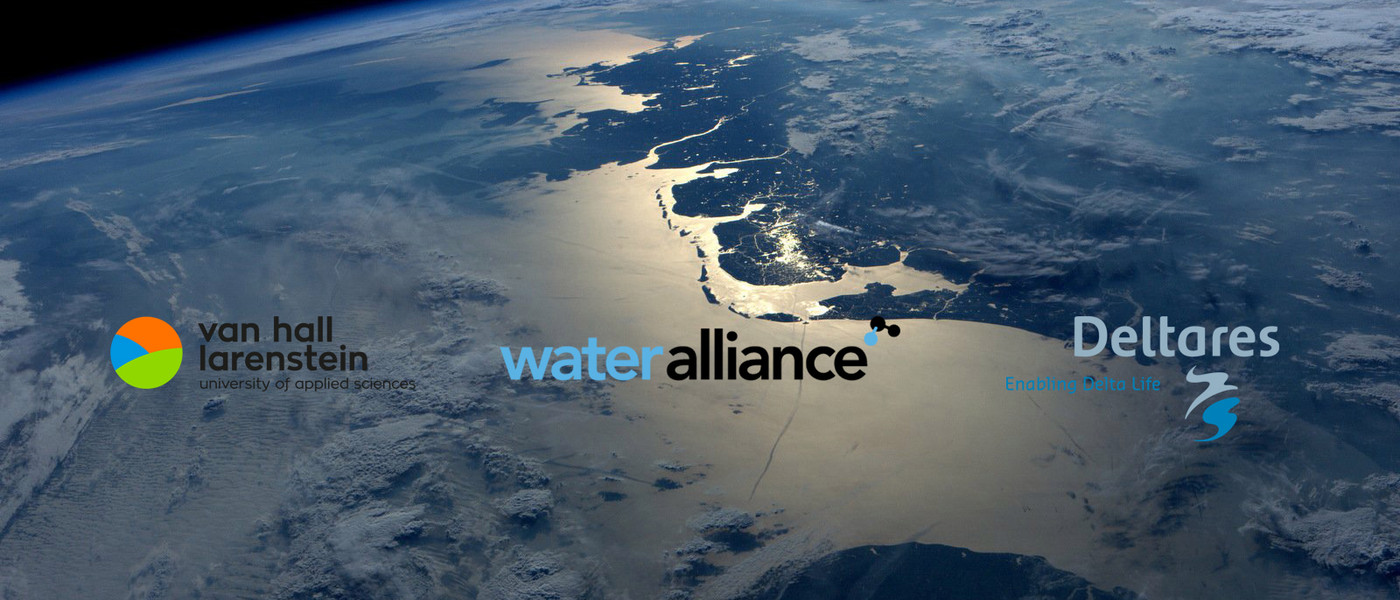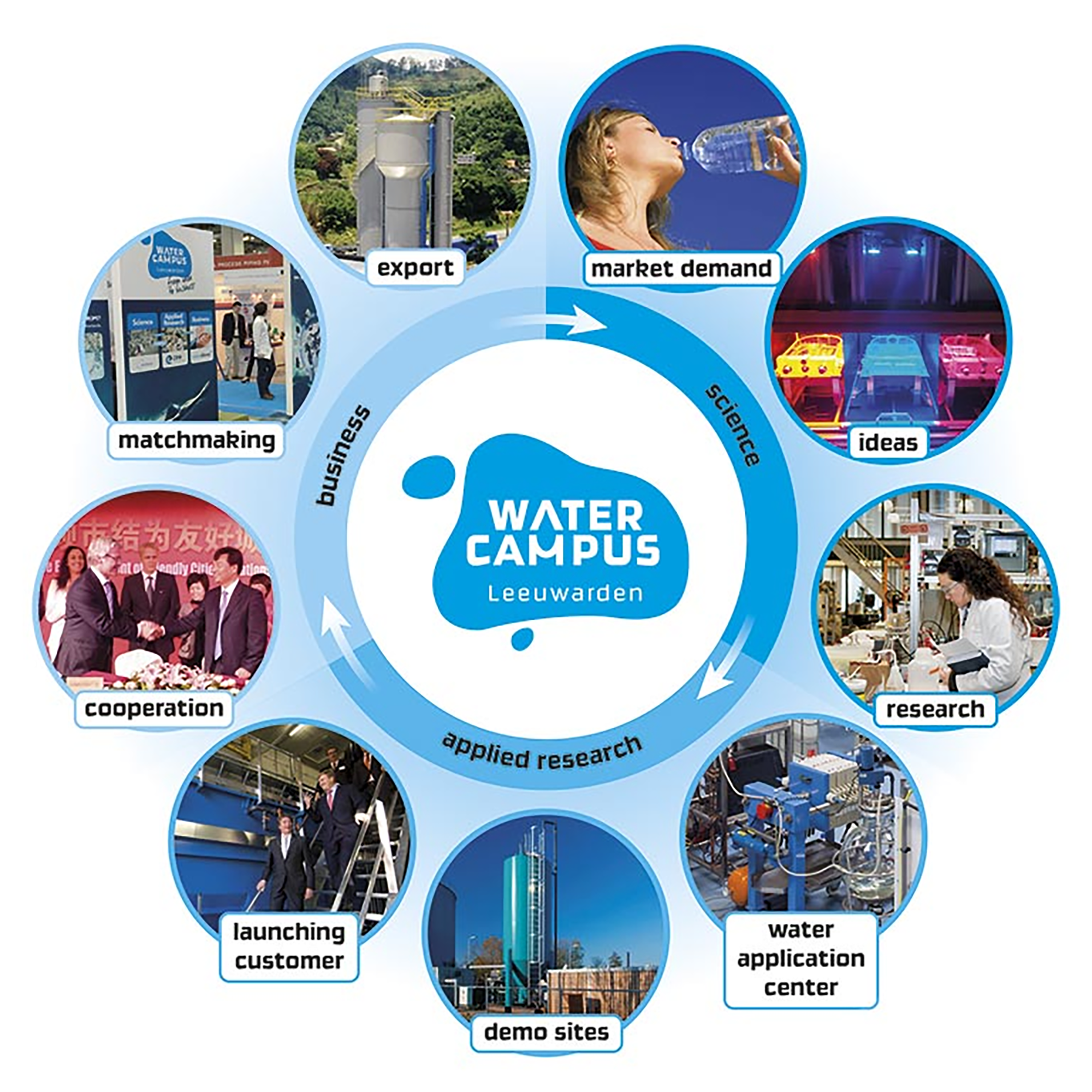Wij gebruiken cookies
Van Hall Larenstein gaat zeer zorgvuldig om met haar klanten informatie en zal deze gegevens nimmer aan derden ter beschikking stellen. Lees meer over ons Privacy- en Cookiebeleid.


Side event HQ126
Thursday 23. March 2023
17:00 - 18:15
Side Event Room A
Water pollution, climate change, soil subsidence and sea level rise put a lot of pressure on the availability of sufficient freshwater of good quality for its ‘users’ such as agriculture, drinking water supply, industries and nature. To safeguard water availability for economy and ecology, our societies are confronted with complex challenges. Although ‘technical solutions and innovations' are often available, e.g., methods for water retention and reuse, these innovations often have severe impacts on the natural system, society and local and regional economics. The challenges are therefore complex and transdisciplinary. Hence, solutions for sustainable water management often require changes in the social domain, in behaviour, economy and governance, based on system understanding. Regarding sustainable water management, technical solutions and innovations will only work if there is sufficient trust and confidence that they really will work, among all stakeholders. This side event focuses on Living Labs, as a supportive method to enhance water related sustainability transitions. Living labs offer learning environments for all participating parties: governments, entrepreneurs, knowledge institutions and other stakeholders. Parties cooperate and work intensively together in real life environments, to find solutions for sustainable water management that are in line with stakeholders' interests.
Main focal points of the living lab methodology entail:
Exchange of knowledge and experiences to support joint and shared understanding of system drivers and present and future sustainable boundary conditions, across scales.
Mutual development and sharing of ideas to support development of joint visions to achieve required (system) transition goals.
Support a holistic approach that takes a multi-issue view, based on system understanding, in order to counteract suboptimal single-issue solutions.
Enhance commitment of scientists, citizens, stakeholders and policymakers to co-create long term adaptation plans to achieve transition goals.
Apply and monitor innovations in techniques, finance arrangements, governance and inclusivity, and evaluate and improve the effectivity of innovations in an iterative process.
Shared access to tools and results in order to make the process transparent, scalable and repeatable.
Involvement of students and citizens and communication professionals in capacity building, disseminate lessons learned and support the sense of urgency.
The side event will present living lab examples related to the crucial food-water nexus, focusing on low lying coastal regions and sandy islands, highly productive clay and peat-meadow areas. Other examples are related to the WaterCampus, a unique innovation ecosystem for water technology based in Leeuwarden. WaterCampus stimulates cooperation between (inter)national businesses, knowledge institutes and governments within the water technology sector, in order to create synergy for world class innovation, education and entrepreneurship. WaterCampus offers a unique research infrastructure and is a meeting point for scientists and companies from all over the world. This innovation ecosystem aims to accelerate the introduction of new innovative water technology from first idea to market introduction and adaptation: the so-called chain of innovation. For example, through Water Alliance the WaterCampus is connected in a global network of water and clean tech clusters to accelerate the introduction of new innovative technologies globally.

Organizers: Peter van der Maas (professor of applied sciences - Sustainable Water Systems, VHL University of Applied Sciences), Hein Molenkamp (managing director, Water Alliance), Mindert de Vries (eco-engineer and expert Nature Based Solutions for Climate Adaptation, Deltares and VHL University of Appleid Sciences).
During the side event the keys for success (or failure) of Living Labs for sustainable water transitions (worldwide) will be discussed with the participants. The speakers are affiliated to the organizing partners: Van Hall Larenstein University of Applied Sciences, Water Alliance and Deltares. This side event is strongly related to the SDGs 6, 13 and 17, interlinked with other SDG’s, e.g., 12, 15, 14, 8, 11.
